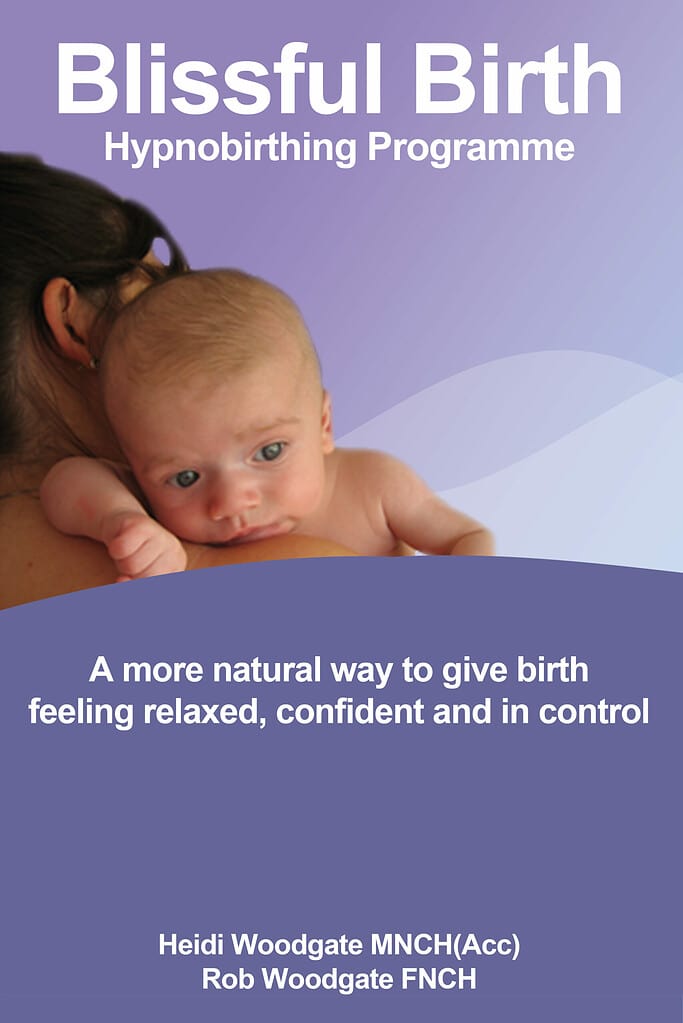For many, the thought of childbirth may bring to mind images of a glowing mother-to-be, surrounded by loved ones and welcoming a new life into the world with open arms.
For others, the mere thought of giving birth can cause intense fear and anxiety. For them, it can be overwhelming and even terrifying.
This fear can progress into a debilitating phobia known as tokophobia. For those who suffer from tokophobia, the fear of childbirth can be so severe that it prevents them from considering pregnancy altogether.
Table of Contents
What is tokophobia?
Tokophobia is a term used to describe a severe fear of pregnancy and childbirth. It affects women of all ages, backgrounds and nationalities.
According to research, the worldwide prevalence of tokophobia is estimated at 14%.
The fear can be so intense that women may avoid becoming pregnant altogether, or opt for a caesarean section to avoid vaginal birth.

Tokophobia can be experienced in two forms: primary and secondary.
Primary tokophobia affects women who have never given birth but have a pathological fear of childbirth, often linked to past experiences.
Secondary tokophobia occurs in women who have previously given birth and experienced a traumatic birth experience, leading to post-traumatic stress disorder (PTSD).
Men can also experience tokophobia, with research suggesting a rate of over 1 in 10 fathers.
What are the symptoms of tokophobia?
Tokophobia can manifest in a variety of ways, and some women may experience more severe symptoms than others.
Some common tokophobia symptoms include:
- Extreme fear or anxiety when thinking about pregnancy or childbirth – Women with tokophobia may experience a strong sense of fear or dread when thinking about the process of pregnancy or childbirth.
- Panic attacks – In some cases, women with tokophobia may experience panic attacks when confronted with the idea of pregnancy or childbirth.
- Intrusive thoughts – Women with tokophobia may experience intrusive thoughts or images related to pregnancy or childbirth. For example, they may have vivid nightmares about giving birth or experience flashbacks to traumatic events related to pregnancy or childbirth.
- Sleep disturbances – Those with tokophobia may experience nightmares and insomnia.
In addition to the above symptoms, other behaviours and emotions can develop as a result of tokophobia. Other symptoms include:
- Avoidance of sexual activity out of fear of becoming pregnant.
- Consideration of abortion or adoption as alternatives to giving birth.
- Difficulty bonding with the baby after birth.
- Trauma surrounding the birth experience.
- Anxiety, depression, and other mood disorders.
- Eating disorders and other related conditions.
These conditions can take over a person’s thoughts and actions, which can cause a lot of stress and worry that is bad for both the mother and the baby.
Who is likely to get tokophobia?
Tokophobia can affect anyone, regardless of age, race, or background. However, certain factors may increase the likelihood of developing the condition.
These factors include:
- Previous traumatic experience – Women who have had a traumatic or negative experience related to pregnancy or childbirth, such as a difficult birth or the loss of a child.
- Anxiety and depression – Women with a history of anxiety or depression may be more prone to tokophobia, as their mental health struggles can exacerbate feelings of fear and anxiety related to pregnancy and childbirth.
- Lack of knowledge or understanding – Those who lack knowledge or understanding of the process of childbirth may be more likely to experience Tokophobia, particularly if they have never been pregnant before.
Other factors that lead to a higher risk of tokophobia include:
- Fears related to medical care, like ineffective pain control, or injury or death.
- Hearing stories about negative childbirth experiences.
- Traumatic memories of childhood.
- History of sexual abuse.
- Being a bisexual, lesbian, or transgendered individual.
It’s important to note that these factors do not guarantee that a woman will develop tokophobia, and anyone can experience the condition regardless of their background or history.
However, identifying and addressing these risk factors can be an important step in managing tokophobia and promoting a healthy pregnancy and childbirth experience.
Seeking professional help from a mental health professional or hypnotherapist can also be beneficial in managing the condition and developing coping strategies to overcome fear and anxiety related to pregnancy and childbirth.
Common fears about childbirth
At some point during their pregnancy, most mothers-to-be will experience at least one of the following fears, each of which is completely normal and natural to experience.
Here are some of the most common childbirth fears and how to cope with them:
Fear of the unknown

One of the most common fears related to childbirth is the fear of the unknown. This fear is often felt by first-time mothers who have never experienced childbirth before.
It’s normal to feel anxious or unsure about what to expect during labor and delivery, especially if you haven’t had much exposure to childbirth before.
The fear of the unknown can be particularly challenging because it’s hard to know exactly what to expect.
To help manage this fear, it’s a good idea to create a birth plan and talk to your doctor and midwife about your birth choices and preferences.
And while it is often helpful to make plans in case things don’t go as expected, mothers who mentally rehearse things going smoothly generally have a better subjective experience of pregnancy and labor.
For help with this, check our our Birth Rehearsal MP3.
Fear of labor pain
Let’s be real, labor pain is no walk in the park. It’s intense, it can be prolonged, and it can be downright scary. But the good news is, there are ways to manage and even reduce the pain. The key is education and preparation.
First things first, it’s important to acknowledge that labor pain serves a positive purpose. It’s a sign that your body is working hard to bring your baby into the world. And while the pain may be intense, it does come to an end, and your body releases natural endorphins to help you quickly put the birth experience behind you.
If the thought of labor pain is causing you anxiety, there are plenty of options for pain management during labor, ranging from medications like epidurals to complementary and alternative therapies like acupuncture, meditation, and hypnotherapy.
It’s important to discuss your preferences with your healthcare provider to make an informed decision about what’s best for you.
Fear of not making it to the hospital on time

The fear of not making it to the hospital on time can be particularly heightened for women who live in rural areas or who have a history of fast labors.
Not all labors progress at the same rate, and it’s impossible to predict exactly when labor will start and how quickly it will progress. However, there are some steps you can take to ease this fear and increase your chances of getting to the hospital in time.
If you’re concerned about timing, it’s helpful to plan ahead. Make sure you know the route to the hospital and factor in potential traffic.
It’s also a good idea to have a backup plan in case you can’t make it to the hospital in time. Talk to your healthcare provider about what to do if you can’t make it to the hospital, and consider having a home birth kit ready just in case.
Fear of pooping while giving birth
Of all the fears surrounding childbirth, the fear of pooping while giving birth may seem like the most embarrassing one. But let me assure you, it’s entirely normal and nothing to be ashamed of.
In fact, it’s so common that labor and delivery nurses are experts at discreetly handling it without any fuss.
When you’re pushing, you’re using all the muscles in your body, including those in your rectum. As a result, it’s not uncommon for some stool to come out. But let’s be real here: In the grand scheme of things, this is a minor issue that is far outweighed by the joy of bringing a new life into the world.
Besides, most women are so focused on the intensity of labor and the excitement of meeting their little one that they hardly even notice if they’ve had a bowel movement.
Your healthcare provider has seen it all before, and they’re not going to judge you or make you feel embarrassed. They’re there to support you through every step of the labor and delivery process, and that includes handling any bodily functions that may occur.
So, if the fear of pooping during labor is something that’s been weighing on your mind, just focus what it will be like to meet your baby for the first time.
Fear of needles
Fear of needles is a common fear that many people have, and it can be especially challenging for those who are preparing for childbirth.
If this is the case for you, worry not as there are ways to manage this fear and still receive the medical care that you need during labor and delivery.
One common use of needles during childbirth is for epidurals, which are used to provide pain relief during labor. If you’re afraid of needles, the thought of having a long needle inserted into your spine may be enough to send you into a panic.
However, it’s important to remember that epidurals are a safe and effective way to manage labor pain for many women. And as mentioned above, there are plenty of other options for pain relief in labor, including hypnobirthing.
Other uses of needles during childbirth include IV drips, Pitocin to stimulate contractions and blood tests. While these interventions can be intimidating, they may be necessary to ensure the safety of both you and your baby during labor and delivery.
Again, talk to your healthcare provider about your concerns, and the benefits and risks of their proposed treatments. It may be that you can avoid needles in most cases.
You can also ask your healthcare provider about using a numbing cream or other pain-relieving methods to help reduce any discomfort from needle insertions.
Finally, if you’re afraid of needles, you may want to consider some relaxation techniques, such as deep breathing or visualization, to help manage your anxiety. Our Learning to Relax in Self Hypnosis MP3 is useful here.
Fear of interventions
Now, let’s talk about the fear of interventions during childbirth. While it’s true that some women may require interventions such as an episiotomy or caesarean section, it’s important to take note that these procedures are not always necessary. In fact, most births do not require any interventions at all.
An episiotomy is a surgical cut made in the area between the vagina and the anus (called perineum) during delivery to widen the vaginal opening.
While this used to be a routine procedure, this is no longer recommended by medical professionals unless necessary.
A caesarean section, or C-section, is a surgical procedure where the baby is delivered through a cut made in the mother’s abdomen and uterus. While it’s major surgery and carries some risks, it can be a lifesaving procedure for both mother and baby in certain situations.
That being said, it’s also important to have open and honest communication with your healthcare provider about your preferences and concerns. You have the right to be informed and involved in any decisions regarding your care, and your healthcare provider should respect and honor your wishes as much as possible.
For more on this, read my Tips for a natural birth in hospital article.
Fear of vaginal tearing
Let’s face it: the thought of vaginal tearing can be scary. But it’s essential to remember that it’s a normal part of childbirth for many women and not all tears are created equal.
In fact, most tears are first-degree tears, which are small and only affect the skin around the vaginal opening. These tears usually heal quickly and don’t require stitches. Besides, a woman’s body is designed to give birth and handle the process.
Of course, it’s understandable to want to avoid tearing if possible. There are things you can do to help minimize your risk, such as practising perineal massage or working with a skilled birth attendant who can help guide you through the pushing phase. And with proper postpartum care, you can recover and heal comfortably in no time.
It also helps to stay relaxed and calm. That way, your body won’t be tensing up and fighting to slow down the delivery (which is our natural response to perceived danger).
A hypnobirthing program like Blissful Birth can help you overcome your fears about giving birth, and give you the best chance at staying calm and relaxed.
So take a deep breath, mama. Your body is strong and capable, and with the right mindset and support, you can navigate childbirth with confidence and ease.
Fear of dying
Fear of dying during childbirth is a common fear that a lot of women experience. It’s natural to feel anxious about the unknown and potential risks associated with labor and delivery.
However, did you know that maternal mortality rates are very small, and have significantly decreased over the years?
The global maternal mortality ratio (MMR) decreased by 34% between 2000 and 2020 – from 342 deaths to 223 deaths per 100,000 live births.
It’s important to discuss any concerns you have about childbirth with your healthcare provider, who can provide you with information and reassurance.
Additionally, attending childbirth education classes and preparing a birth plan can help you feel more in control and prepared for the birth process.
Fear of change

Becoming a parent is a huge responsibility and a life-changing event, so it’s completely understandable to feel scared about the changes that are about to happen.
You’re not alone in feeling this way. Many new parents experience feelings of anxiety and uncertainty about what the future holds.
One way to ease these fears is to start preparing early. Attend childbirth classes, read books about parenting, and talk to other parents about their experiences. This can help you feel more confident and prepared for the journey ahead.
Remember that change can be a good thing. While it may be scary to think about, becoming a parent can bring so much joy and love into your life. Focus on the positives and try to embrace the changes that are happening.
If you’re still struggling with having extreme fear of change, consider talking to a counsellor or hypnotherapist who can help you work through these emotions and develop coping strategies.
Is it normal to be scared to give birth?
Yes, it is completely normal to feel scared or anxious about giving birth. It’s a big life event that can bring up a lot of emotions and uncertainties.
Many pregnant women feel a range of emotions, from excitement to fear, throughout their pregnancy and up to their due date.
Let this be a reminder that everyone’s experience is unique and valid, and there is no “right” or “wrong” way to give birth. Each woman’s body and baby are different, and there are many options for pain management and delivery methods.
How can I overcome my fear of labor?
Feeling afraid of labor and childbirth is totally understandable. But I want to let you know that you don’t have to let your fears take over.
One effective method to overcome your fear of labor is through hypnobirthing, which is a natural childbirth technique that uses relaxation, visualization, and self-hypnosis to help women have a more comfortable and positive birth experience.
If you’re interested in learning hypnobirthing, Blissful Birth is a great place to start. This downloadable hypnobirthing program will guide you through techniques to help you stay relaxed, calm, and in control during labor.
It includes a downloadable hypnobirthing book, three hypnobirthing MP3s, and worksheets to help you fully prepare.
If you’re experiencing more severe anxiety, seeking professional help through private hypnotherapy sessions may be a better fit for you.
Hypnotherapy sessions with me can be done over Zoom and will provide you with personalized support and guidance as you work through your fears and anxieties.
They can help fearful birth partners too, though in some cases they may prefer hypnotherapy sessions with a male hypnotherapist.
No matter which route you choose, remember that you have the power to overcome your fear and have a positive birth experience. You got this!




